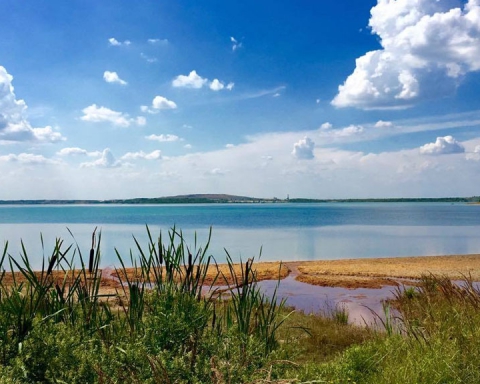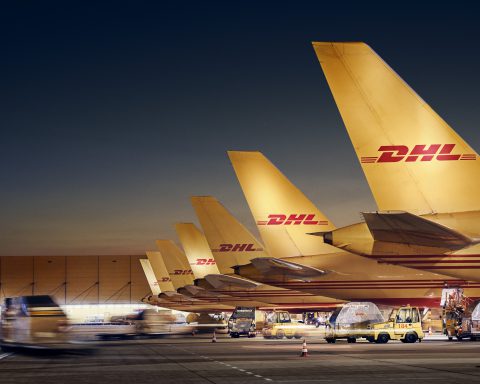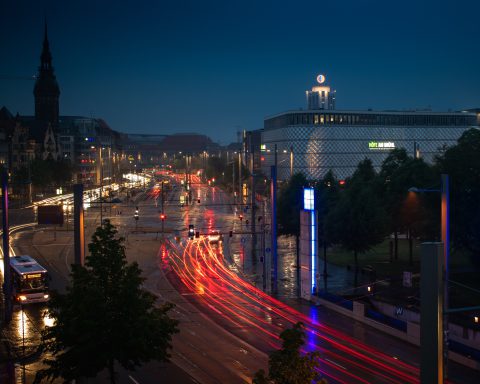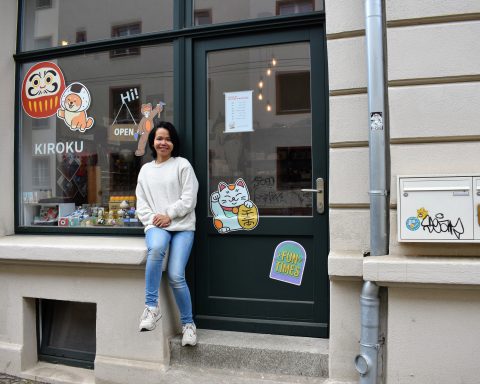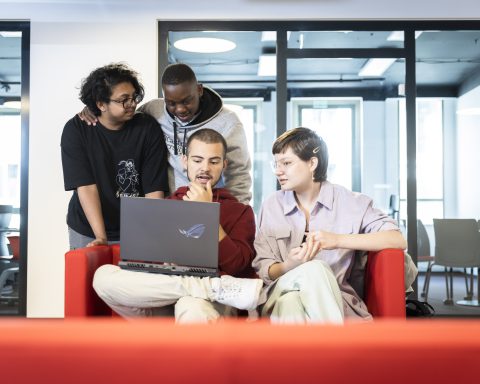Writing is an occupation whose success crucially depends on rituals and routine, beyond creative fuel.
Those of us with day jobs and families need a quiet refuge – where we can work without distractions and reminders of daily chores, where we can be anonymous, with our privacy and concentration respected. Cafés are a time-proven solution for many generations of European writers.

For a long time, I had been looking for such a place, to write along with a cup of tea and a snack. In many parts of the city, this problem would have easily been solved; but I work in the north of Leipzig, in Mockau. It is a strictly functional, stark area, with good infrastructure but not exactly famous for cozy and stylish cafés.
Without a nearby café, the hour and a half that I have at my disposal between work and picking my son up from the kindergarten would be half spent on driving downtown and back. The few venues available near my workplace somehow felt not at all conducive to writing.
Until one day, I drove to a recently renovated fuel station on Mockauer Str. to get gas.
To my astonishment, besides the usual fuel station entourage, I discovered a modest but stylish lounge in mint-green and gold, soft-seat chairs and couches, the ceiling beautifully lit up with colors of an alternating rainbow pattern.
The counter was resplendent with diverse snacks and pastry. It was lunch time, and I asked for a cup of green tea, a salmon-and-egg sandwich and a piece of cheese cake.
The staff member, a green-eyed young man with a frizzy ponytail and Oriental charm, invited me to sit down and brought my order to my soft green seat, the cake topped generously with whipped cream, and the sandwich extra garnished with squeaking fresh lettuce salad – all additions free of charge. “Leave everything on the table when you’re finished; we’ll clean up.”
Not exactly the fuel station service range, is it? So I have been returning to Greenline Tankstelle in Mockau almost every weekday, and have been treated the same way as I was the first time.
All that I have written in the last two years was entirely done there.
Greenline has a big pool of regular customers, all very international and from different walks of life, who may just come for a beer, or those like me working away on their laptops. Many times, I witnessed job interviews and business negotiations held on those green sofas, to the invariable discreet friendliness of the staff.
I hear Arabic, Hungarian, Italian, Albanian, English, Polish, and Ukrainian frequently spoken. It should be said that the team members are as international as its customers.
Tino Fruth of Class 10 spoke to Ben Rabah, the Greeline team member who came to Leipzig from Tunisia two years ago. His German, for the short time spent here, is impressively good – lithe, idiomatic and colloquial.
Ben ended up in Leipzig mainly due to his German girlfriend, but also to challenge himself in a new country, learn the language and find a job.
The latter pursuit turned out to be quite difficult: “It is next to impossible for a foreigner to find a job in Leipzig,” he said. It took Ben uncountable rejections to finally land a position at Greenline, and even here, his contract will expire in a year and he will have to start the quest anew.
Ben is fascinated by Leipzig’s versatility but misses his family, the Mediterranean Sea and the beach.
“People here are overwhelmingly nice but I do feel different, not fully accepted most of the time, ‘not in the club.’ I’ve also caught hostile glances, and once a man in the street insulted and spat at me – just because I didn’t look German.”

The Greenline would never be the same without Ben, who lends the café its inimitable Southern mellow flavor.
It is supremely unjust that he does not receive in kind the hospitality of the citizens of my city.
Let’s hope his next quest will be victorious. Meanwhile, I still have another year to enjoy Ben’s company.
By Svetlana Lavochkina with Tino Fruth, Free Waldorf School Leipzig / Bridges of (Com)passion series



